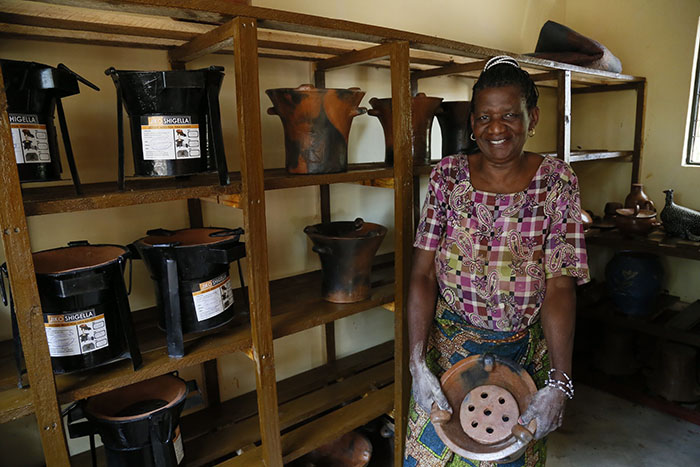#MoveTheDate
Based on scenarios calculated by Project Drawdown, the adoption of clean cookstoves would move the date of Earth Overshoot Day 6 days by 2050.
What is the solution?
Replacing traditional cookstoves—that burn wood or charcoal inefficiently and often lack ventilation—with clean cookstoves. Clean cookstoves include solar-powered or fuel-burning household stoves that reduce greenhouse gas emissions by increasing thermal efficiency or increasing ventilation.
This solution improves our resource security in the energy category.
How does it #MoveTheDate?
Traditional cooking practices are responsible for between 2 to 5% of global annual greenhouse gas emissions. Adopting improved clean cooking technologies has the potential to reduce humanity’s Ecological Footprint by cutting down carbon emissions and reducing the unsustainable harvest of biomass.
How is it scalable?
Many are working towards the UN goal of 100 percent access to clean cooking by 2030. There are considerable economic benefits to mitigating climate change and improving public health.
What is the solution?
Replacing traditional cookstoves—that burn wood or charcoal inefficiently and often lack ventilation—with clean cookstoves. Clean cookstoves include solar-powered or fuel-burning household stoves that reduce greenhouse gas emissions by increasing thermal efficiency or increasing ventilation.
This solution improves our resource security in the energy category.
How does it #MoveTheDate?
Traditional cooking practices are responsible for between 2 to 5% of global annual greenhouse gas emissions. Adopting improved clean cooking technologies has the potential to reduce humanity’s Ecological Footprint by cutting down carbon emissions and reducing the unsustainable harvest of biomass.
How is it scalable?
Many are working towards the UN goal of 100 percent access to clean cooking by 2030. There are considerable economic benefits to mitigating climate change and improving public health.
Around 40% of the world’s population uses wood, charcoal, animal dung, crop residues, or coal as cooking fuel. The majority of this population also uses open fires, often indoors or in areas with little ventilation. This causes serious health problems and over four million premature deaths every year.
Not only are traditional open cookstoves harmful to human health, but they are also harmful to the environment, emitting greenhouse gases and contributing to deforestation. Up to 34% of the wood harvested for fuel is done so unsustainably, and harvesting wood impacts the potential of forests to sequester carbon.
Expanding access to improved cooking technologies can help reduce our carbon Footprint and save millions of lives. Many organizations, including the Clean Cooking Alliance, are currently working to support the development and distribution of clean cooking technologies. A number of options are available as alternatives to open fires and traditional stoves, including advanced biomass stoves, some of which have the potential to reduce emissions by 95%.
Calculations for this solution are based on work done by our friends at Project Drawdown. You can get more information about this solution and their calculation methodology here.
There’s no benefit in waiting!
Acting now puts you at a strategic advantage in a world increasingly defined by ecological overshoot. Countless solutions exist that #MoveTheDate. They’re creative, economically viable, and ready to deploy at scale. With them, we can make ourselves more resilient and #MoveTheDate of Earth Overshoot Day. If we move the date 6 days each year, humanity can be out of overshoot before 2050.

